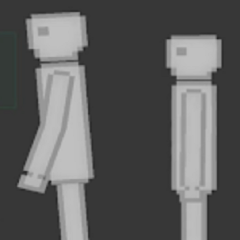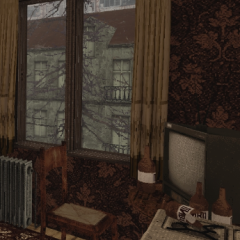The Camera as Your Lifeline
Central to the gameplay is your camera, a tool that functions as both a light and a lens into hidden truth. Blood stains that are invisible to the eye, handprints left behind in panic, and symbols etched into the walls appear only when seen through the lens. The camera allows you to document evidence, capture fleeting moments, and sometimes reveal what doesn’t want to be found. In a world designed to mislead, this tool becomes your only reliable filter between reality and illusion.
Core gameplay features include:
- A camera-based detection system revealing hidden messages
- Interactive crime scenes that evolve based on player decisions
- Detailed evidence tracking with branching narrative impact
- Environmental puzzles that require logic and observation
- Sound-driven events that hint at unseen presence nearby
Environments That Think Back
The world of Manivore is more than a backdrop—it reacts. Rooms seem to rearrange themselves after being visited. Clues disappear and reappear in different forms. What was once a safe space may become unfamiliar the next time you enter. The game plays with spatial memory, using subtle alterations in the environment to instill confusion and dread. Audio recordings distort, lights flicker with intent, and locked doors sometimes open without explanation. The experience becomes a dialogue between the space and the player’s own unraveling thoughts.
Psychological Entrapment
Manivore manipulates more than just rooms—it manipulates trust. The game makes you question what you know, what you’ve seen, and even what your character remembers. Each new crime scene isn’t just a mystery to be solved, but a reflection of what the killer wants you to believe. Some notes are left for you. Some puzzles seem crafted around your actions. Over time, it becomes less clear if you’re solving the crimes or being trained by them. This manipulation of perception and control is a core part of the game’s psychological weight.
A Message Written in Blood
By the time the final act unfolds, you are no longer a detached investigator—you’re part of the killer’s story. Manivore does not seek escape or recognition. He seeks completion. And to him, you are the final missing piece. The final scenes blur the line between resolution and surrender, forcing players to choose how they confront what they’ve learned. There is no perfect ending—only the consequences of following a mind capable of reshaping death into communication. Manivore is not a game about defeating evil. It is a game about seeing it, understanding it, and questioning how close it has gotten to you.





























